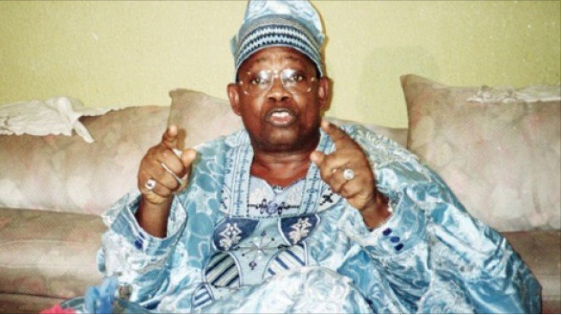
On this 25th anniversary of the June 12, 1993 presidential election, adjudged the freest and fairest in the history of Nigeria, and which was annulled by the military in a streak of authoritarian madness, the scars are still deep and healing is far from complete.
As this newspaper noted on the twentieth anniversary, five years ago, a traumatized nation, poised then for a real taste of joy, still reels in the pain of a cruel, painful and unnecessary abortion of new birth.
It was probably the most wicked act perpetrated against Nigeria.
Today, there are bound to be reflections on the disgraceful action of the military administration of General Ibrahim Badamasi Babangida, which annulled the election and the long-term implication it has had on the polity.
It is just enough to say that with that singular action, Nigeria succeeded in snatching defeat from the jaws of victory and the nation’s manifest rendezvous with glory was halted by a stupid and mindless dictatorship.
Twenty five years after, there is democracy, but true democrats are hard to find. Elections have been held, but the will of the people has not had the kind of expression it had on June 12, 1993.
Leaders have come, but none has come free of religious or ethnic baggage as was the case on June 12, 1993.
The result has been a Nigeria still questioned by many Nigerians; a nation full of promise but still in doubt of itself.
‘June 12’ was certainly a milestone in Nigeria’s quest for its true identity. It was the epoch in the struggle against military rule and the return of the country to the path of democracy.
It was the manifestation of the hopes and aspirations of all Nigerians to be governed by leaders chosen on the basis of democratic principles.
On that day in 1993, Nigerians also said goodbye to parochialism and primordial considerations that had governed the country.
A Muslim-Muslim ticket was not seen as an incongruity. Instead, the people saw only a Nigerian-Nigerian ticket.
They voted for Moshood Abiola and Babagana Kingibe, irrespective of their religious affiliation, in a classic statement of an end to the usual appeal to base instincts and a clear declaration of the dawn of a New Nigeria.
Indeed, a new nation was born in which there was one ethnic group: Nigeria and only one religion: Nigeria.
But the Nigerian military, led by General Babangida annulled that great movement of history and pulled Nigeria into the abyss of despair in which it still gropes today.
Authoritarianism returned to the polity with a vengeance when the people vehemently sought the actualisation of their will.
A bestial culture of impunity again seized the foreground and in the process, a once united country was bifurcated along Muslim-Christian, North-South and East-West divides.
General Sani Abacha, a little man with the smallest of minds took over. Newspapers, including The Guardian, were forcefully shut by the military for standing for the truth. And the country became a pariah nation, under multilateral sanctions.
The ills of military rule were met with a corresponding resistance from a heroic people who demanded that the soldiers should leave the political scene and return the country to democracy.
It was, of course, the struggle to revalidate June 12 and end military rule that ushered in the current civil dispensation in the country which has run for about 19 years.
The current rulers should, therefore, realise with sobriety that it was the epochal struggle, which began on June 12, 1993 that gave birth to the political space which they currently occupy.
It is this strong sense of history that made many Nigerians mark the June 12, 1993 Presidential election yearly.
The same sense and strength of history was behind the call to recognize June 12 as the authentic Democracy Day, a call which the Muhammadu Buhari administration has now heeded.
Chief Moshood Kashimawo Olawale Abiola, the undeclared winner of the June 12, 1993 Presidential election, has now been immortalised by the Federal Government of Nigeria.
He now has the nation’s highest honour of the Grand Commander of the Federal Republic, GCFR, accorded only Presidents or former presidents.
This recognition is deserved.
Abiola embodied the aspiration of Nigerians desperate for change then.
The whole electoral process that got him an indisputable mandate was the best the nation had ever mustered.
June 12, 1993, to say the least, was about democracy and Nigerians’ collective aspiration for good governance as well as a transparent electoral system.
In June 2002, notable Nigerians sent an eight-paragraph letter to then President Olusegun Obasanjo to, according to its title ‘Honour MKO Abiola Now.’
He couldn’t be bothered.
In January 2003, some senators moved a motion that the Federal Government should name the Abuja stadium, then under construction, after Abiola at least in recognition of his “singular commitment to sports in Nigeria and Africa…” but Obasanjo was not impressed.
With what the Muhammadu Buhari administration has done, it means history has its own way of recognizing its heroes and honouring them.
Abiola’s place was denied, but it was only for a while as neither June 12, 1993 nor the great man of that day can ever be wished away.
END

Be the first to comment